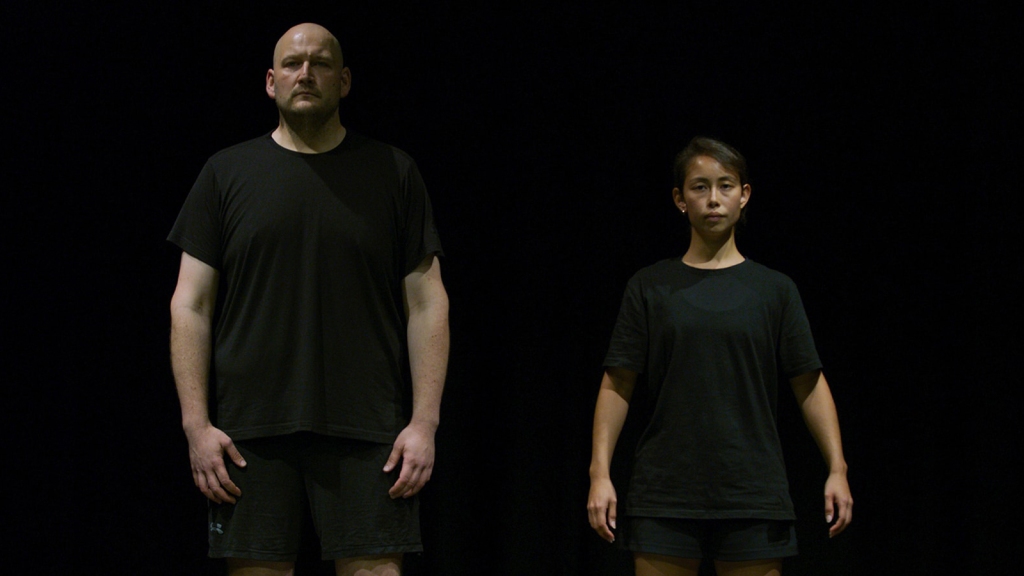
Lilian Steiner
Emile Zile (b. 1979, Australia)
Becoming an Icon, 2020
Someone recommended me this piece, thinking that I might enjoy it. I did not. I could not understand it, it did not appeal to me other than in some compositional choices. The scary thing was that formally it ticked most of my boxes – it was an idiosyncratic case of intermedia (dance, drawing, text, performance, sound, video), it did not offer itself to easy read, it was not too polished, it appeared “experimental”, there was “minimalistic aesthetic” styling choices, there was body movement, there was sound, … It left me thinking – is this how my audience may be experiencing my work? Shut out, alienated?
So, projecting my discomfort as if it was my own piece, I decided to work harder. And still, I felt as in a foreign language class where I could neither understand language of teaching nor language being taught. I could see that that performers were trying to communicate hard – through their bodies, through their gestures, then through words, through drawings – even the optional audio description soundtrack was offering additional hints as what they were trying to articulate… And still, it never jelled into any “understanding” for me… unless it was all about inaccessibility and communication failure, in which case it was quite well done…
Somewhere there I started considering difference between disliking the work and disliking interpretation of the work. I am saying that I disliked the work, but it is based on my failed “reading” of it, thus it is actually my reading that I dislike – yet I am not given a chance to consider other possible readings. And in my practice I am trying not to imbue my works with pre-packaged meanings, which may lead to such situation where audience fails to generate meaning as well; possibly, that’s why I am quite eager to stage encounters with my work where audience sensemaking can be revealed and shared…
So, overall, this encounter with a work I did not like, was productive and thought-provoking. Which leads to another consideration – in what sense is it important whether someone likes or dislikes the work? Clearly, disliking can be a quite productive form of liking nevertheless. Perhaps, I should expose myself to more works I don’t like, maybe it is works that I don’t like that are most pertinent to my practice?
PS Honestly, I may have been suppressing one more reading of the piece that I had – based on some t-shirts with logos, some hints from the audio description characterising certain movements as “placing products”, some later comments from the person who recommended piece to me, also the title – that it may have been a case of yet another convoluted critique of consumerism that for me seems to be a rather exhausted topic… which could also reinforce my assumption that it was my reading (or even my two readings) that I did not like, while the work was what it was – it may have been meaningful in totally different ways for the performers, for audiences who generated better readings or for audiences who generated same readings but happened to like them…